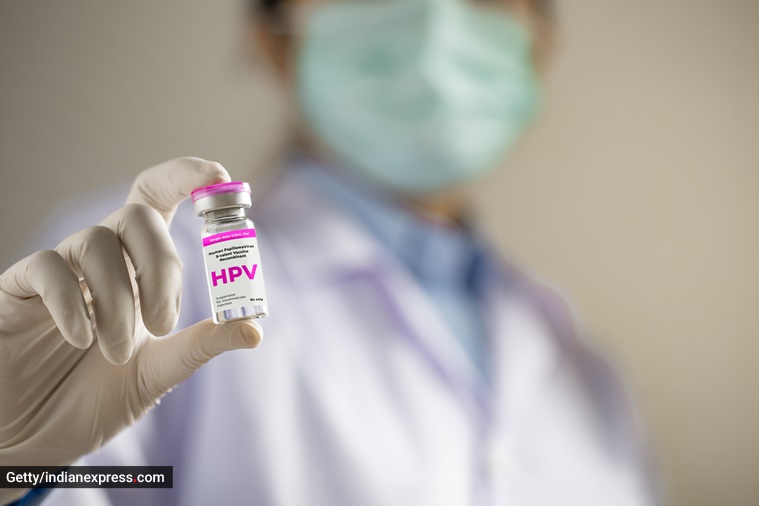Cervical cancer is one of the most aggressive forms of cancer seen in women, for which there needs to be more awareness on its signs and symptoms and prevention measures. The month of January is observed as ‘Cervical Cancer Awareness Month’, and Dr Jaydeep Choudhury, professor, department of pediatrics at Institute of Child Health, Kolkata stressed on the importance of vaccines for human papillomavirus or HPV infections.
The doctor explained that HPV infections are “easily transmitted from person-to-person, mainly by intimate skin-to-skin contact”. It may be transmitted by non-penetrative sexual activity also. According to the doctor, the use of condoms during sexual activity does not prevent HPV infection.
“Everybody is prone to get HPV infection at some point in their lives. Generally, these infections are minor and get cured naturally. But, persistent genital infections with certain types of HPV viruses can lead to the development of pre-cancer and cancers around genital areas in both women and men,” Dr Choudhury warned.
What are the factors causing persistent HPV infection? “…early sexual initiation, particularly below 25 years, multiple sex partners, multiple pregnancies, smoking, oral contraceptive use and lack of circumcision of male partners,” said the doctor. He added that HPV infection is a “proven cause for later development of genital cancers”, and that almost all the cases of female cervical cancers have been attributable to previous HPV infection which may be 15-20 years after an unnoticed infection. “HPV infection may also cause genital warts that are cosmetically distressing.”
Cervical cancer, he said, is essentially a preventable cancer. It is possible to screen and treat it in the early stages. But, information on screening behaviours of Indian women related to cervical cancer is very little, he stated.

“We need both vaccinations to prevent the disease as well as efficient screening to detect any possibility of cancer early. Unlike other viral infections, natural HPV infection does not offer protection due to weak immune reaction. There are no effective screening methods for early detection of these cancers,” Dr Choudhury went on to say.
Per the doctor, vaccines offer protection against common strains of viruses that cause cancers and also genital warts. These vaccines are licensed globally and used in many countries for both women and men. “The vaccines are well tolerated with occasional minimal and minor side effects like pain at the injection site and short duration fever.”
It should be noted that the vaccines can be given from the age of nine. “The nine-valent vaccine that covers seven important strains causing cancer and two strains for genital warts can be given upto 15 years in males and 25 years in females. Three doses are recommended, the second dose is given after 2 months and the third after 6 months of the initial dose,” said the expert, adding that in case of delay in the subsequent doses, there is no need to start the schedule afresh.
“The four-valent vaccine covering two strains each against cancer and genital warts can be given only in females nine to 45 years of age. Only two doses are sufficient if it is started before 15 years of age. Women, who have not taken this vaccine earlier, can take HPV vaccine immediately after delivery and even during breastfeeding phase. In males, vaccination is equally important as they can transmit HPV infection to females. HPV vaccine is the only cancer-preventing vaccine available till date,” he concluded.
📣 For more lifestyle news, follow us on Instagram | Twitter | Facebook and don’t miss out on the latest updates!





